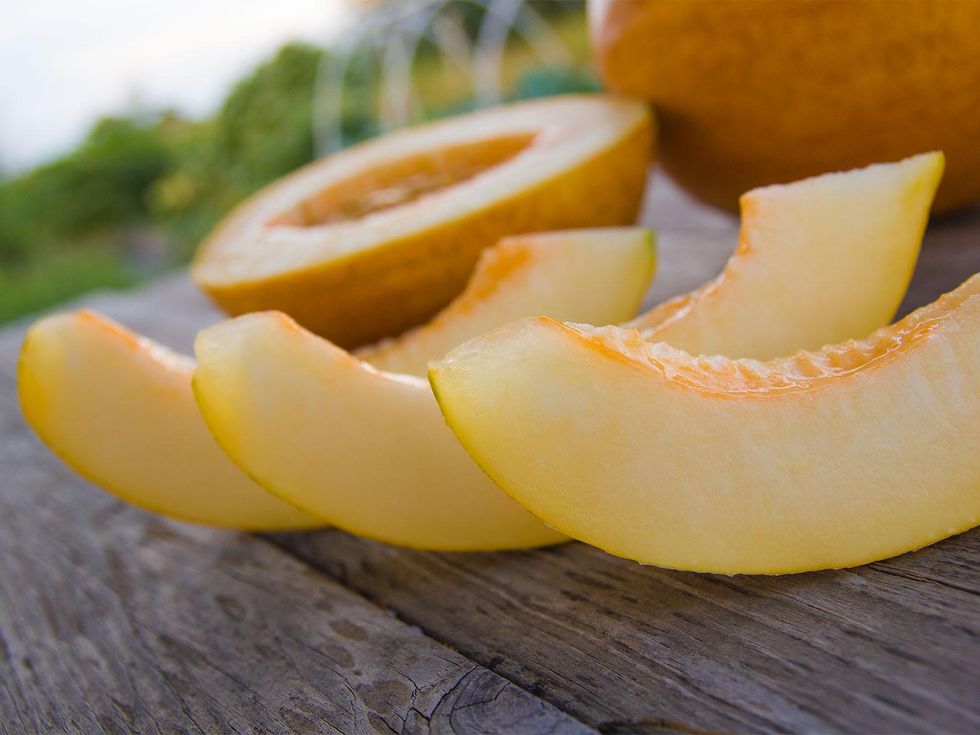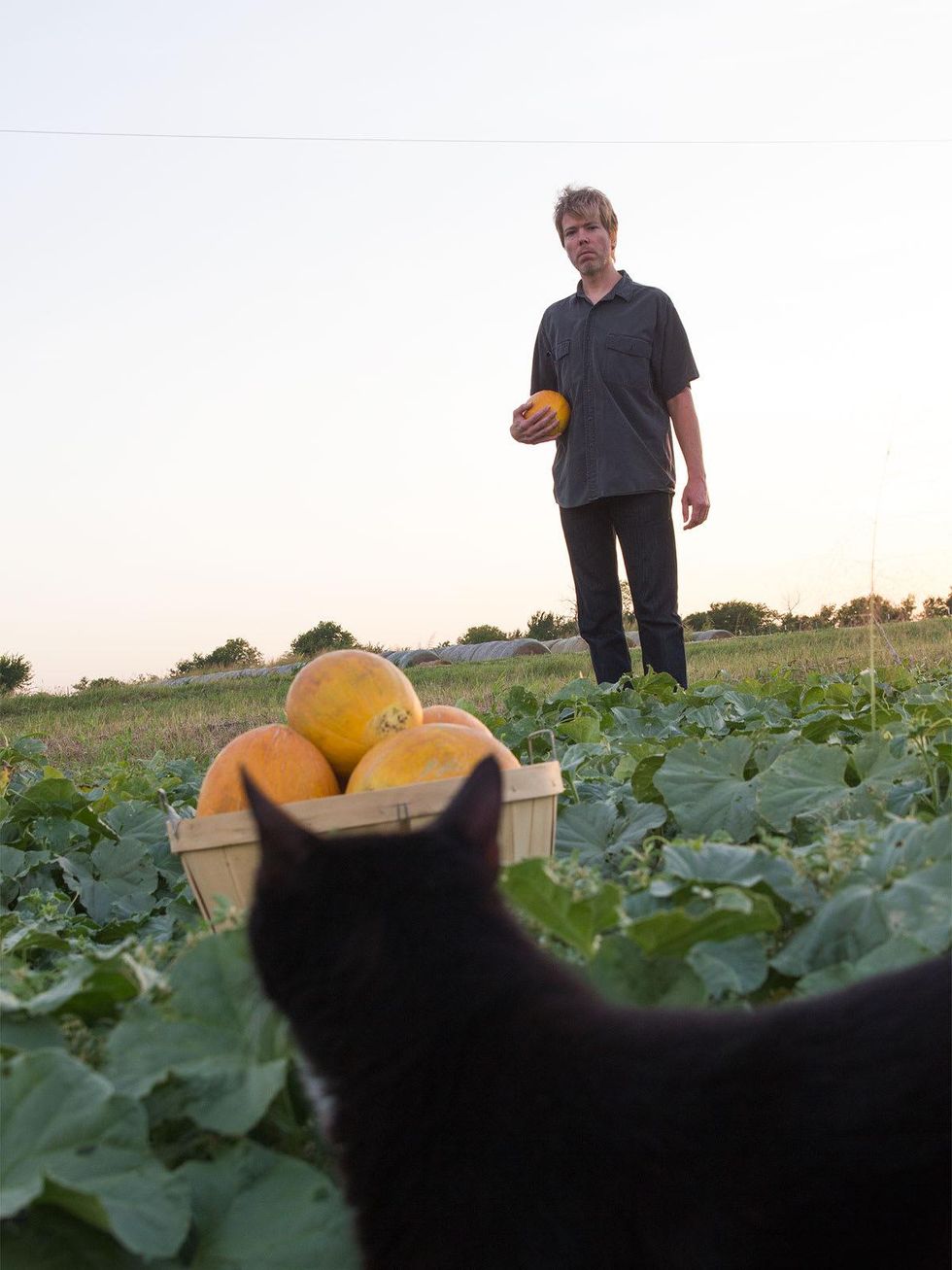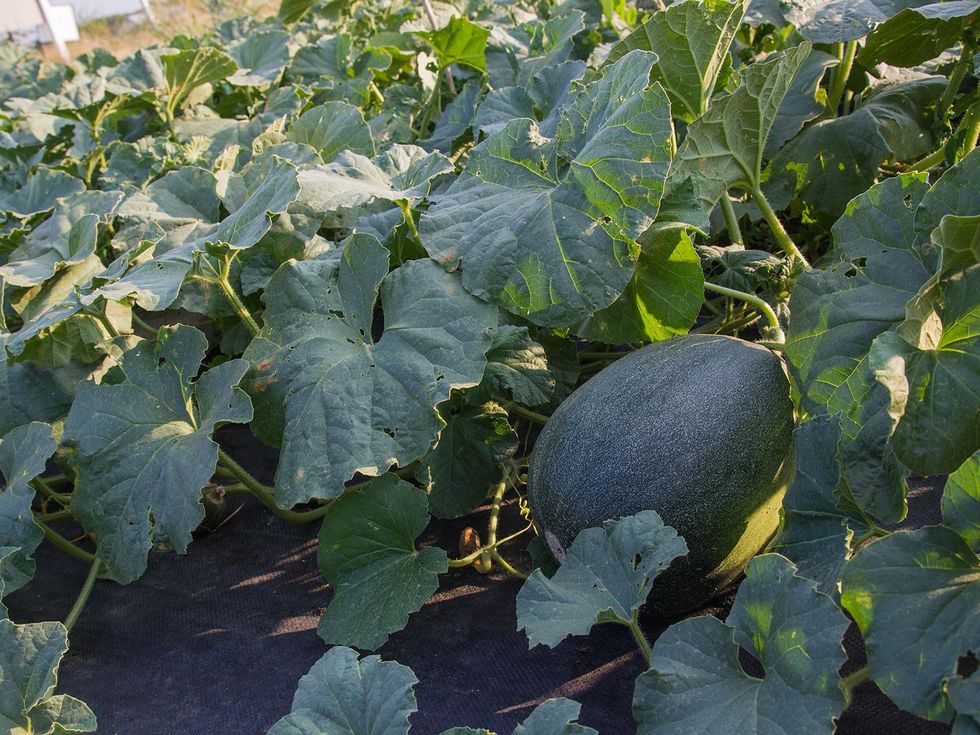The Farmer Diaries
North Texas farmer unearths sweetest melon of all
I am open about all my deficiencies as a farmer. I'll tell anyone about my bitter cucumbers, my inability to grow corn or my mediocre results with sweet bell peppers. But when it comes to cantaloupes, I think that I can say without breach of humility that I've got talent.
And why shouldn't I boast? Mozart was tapping on a piano before he could walk. Likewise, I've been growing cantaloupe since elementary school, and not to have learned a thing or two about them in all this time would require a magnitude of incompetence that not even I could have attained.
Until about 2008, I grew Hale's Best, a cantaloupe about the size of a football with sweet, orange flesh. I never chose Hale's Best; it was chosen for me as Vaughn's Backyard Garden Center was about the only place to buy seed in Waxahachie back in the '70s, and they only sold what worked. A grower could always rely on Hale's Best for an abundant harvest of delicious melons.
Israeli melons produce a creamy, yellow flesh with a floral flavor. Most notable is their sweetness, which reminds me of pears packed in heavy syrup.
But, a few years ago, a local farmer gave my father a few Israeli melon seeds to try. I was skeptical, but my father grew several mounds of them, and the results changed everything that I thought I knew about cantaloupe.
So sweet and so huge were the melons that I dropped Hale's Best for good. Israeli melons performed so much better in the field that to grow anything else began to seem like a waste of time.
The melons grew large — some as large as a bowling ball — and turned bright orange when they ripened on the vines. The plants kept their vigor even in the shadow of stingy rain clouds.
Israeli melons produce a creamy, yellow flesh with a floral flavor. Most notable is their sweetness, which reminds me of pears packed in heavy syrup. They're so sweet, in fact, that once I ate some chocolate a few minutes after gorging myself on an Israeli melon, and so off kilter were my taste buds from the melon's sweetness that the candy was as bitter to me as baker's chocolate.
Also worth noting is the texture of the flesh: It's both soft and crunchy, again very much like canned pears but with a powerful essence of freshness.
As with all melons, Israeli melons require a large area with full sunlight. This year, I planted 12 basins, not mounds, with each basin spaced about six feet from the other. I sowed about six seeds in each basin, and each vine will produce at least one melon. Altogether, my harvest of Israeli melons, which began the second week of July, will net about 60 melons fit for the table.
How sweet it is
I found the seed for sale from Texas' own Wilhite Seed in Poolville. According to Wilhite general manager Don Dobbs, Israeli melons (old original) have been a part of the company's offerings for as long as he can remember in his more than 50 years with the 96-year-old seed supplier. It's an heirloom variety that's part of the specialty melon category never found in the grocery store.
"Israeli melons are one of the highest in sugar content and are popular among home gardeners and specialty growers because of their flavor," Dobb says. "It has a very sweet taste and almost a peppery fragrance but almost no keeping quality.
Israeli melons are susceptible to diseases in large commercial operations but are rarely affected in smaller garden plots.
"Commercial growers need a melon that keeps well and can handle transport, and Israeli melons can't. They also have to be picked by hand because they can't stand up to mechanical harvesting equipment."
Dobbs says that Israeli melons are susceptible to diseases in large commercial operations but are rarely affected in smaller garden plots — another reason the melon is a secret pleasure among a few growers in the know. As with Hale's Best and other specialty melons, gardeners and specialty growers plant small plots of Israeli melons — rarely much more than an acre.
Larger operations prefer hybrids that are selected for durability, not flavor. With each passing decade, the older, delicious varieties of melons are being pushed out of production.
Because of the odd year here and there when I've not had a garden and have been wholly dependent on the produce aisle, I can testify that the melons sold at grocery stores only resemble homegrown melons in appearance, and the flavor of store-bought melons is simply not worth the effort to buy them.
For those who have discovered the benefits of gardening, Israeli melons and other specialty melons are a reward that few have experienced. For me, they're part of the perks to opting out of industrialized agriculture, declaring food independence, and adding back into my life the variety that the grocery store corporations just can't factor into their business model.
"People who want a first-class melon with a high sugar content that's about the most delicious melon they'll ever eat in their life will have to grow an Israeli melon," Dobbs says.
---
Note: Wilhite Seed treats its seed with Thiram, a fungicide that can harm wildlife. I will not buy treated seed for this reason. However, Wilhite has been very accommodating of my request for untreated seed when I add "untreated seed only" to the "additional information" section of the company's online order form.



